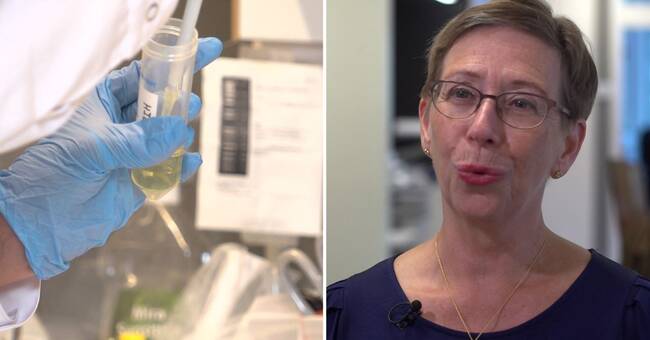For clinical research, the pandemic hit hardest because it is dependent on healthcare.
Suddenly, the lab material ran out, colleagues had to discontinue other studies to start researching covid-19, or to move into healthcare.
- Important research projects have been set aside - around cancer, diabetes, cardiovascular disease.
So you can say that there is a research debt around that type of research right now, says Eva Tiensuu Janson, stf.
Vice-Chancellor at Uppsala University.
Patients have been trapped
In several parts of the country, universities are testifying to the same thing.
At Karolinska Institutet in Stockholm, researcher Joakim Dillner was about to start a national research project to eradicate cervical cancer when the pandemic broke out:
- Then we had to table everything and focus all our activity on research on covid instead.
Between 150-160 women die of cervical cancer each year and here we can quite concretely see the number of deaths that we might have been able to prevent if we had started earlier.
It is probably the most negative consequence of the pandemic that I can show, that patients have been pinched because cancer research has not been able to continue as usual.
Several years of delayed studies
More than half a billion kronor has been pumped into covid research and over 900 studies have been started.
Many donors also encourage researchers to switch to other research and focus on covid-19 and earmark money.
Now it has been almost a year and a half and there is a lot to catch up on.
To catch up, they now have to work in double shifts.
Due to covid-19, almost 500 researchers have already applied for a deferral to the Swedish Research Council.
These are studies that should have been completed today but have been delayed due to the pandemic.
And that's just the beginning.
- There is a doubling of the inquiries already now and we expect that more studies will be delayed for 5-6 years in the future, says the Swedish Research Council's Deputy Director General Maria Thuveson.

